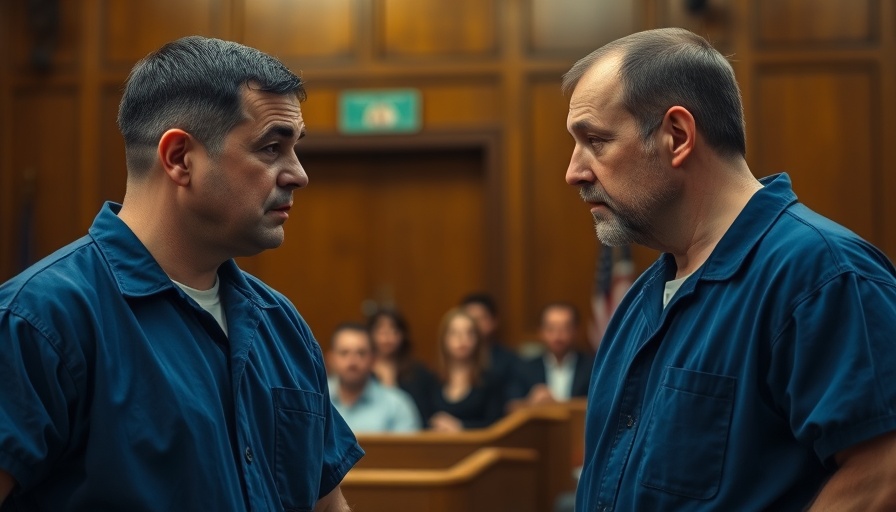
Unearthing the Menendez Brothers' Legacy: A Complicated Story
The saga of Lyle and Erik Menendez is not merely a tale of crime; it is an exploration of trauma, family dynamics, and the American justice system that has captivated audiences for over three decades. As they prepare to face the California state parole board, attention has turned once again to the timeline of events surrounding the infamous double murder of their parents in their Beverly Hills home in 1989.
A Timeline of Tragedy and Trauma
In August 1989, the luxury veneer of the Menendez family was shattered when Jose and Kitty Menendez were brutally shot to death. Initially, their sons appeared to mourn their loss sincerely, but soon became prime suspects. March 1990 marked a turning point when Lyle Menendez was arrested, and within days, Erik followed suit, setting off a media frenzy that transformed them into national figures.
The Unfolding Trial: Financial Gain or Self-Defense?
As the trial commenced in 1993, the prosecution claimed the brothers murdered their parents for financial reasons. However, the defense argued that their actions were the consequence of years of abuse, presenting a narrative that complicated the notion of guilt. This was a pivotal moment for public perception, as many began to empathize with the brothers' claims of abuse, altering the landscape of how such cases are perceived. The jury's deadlock in January 1994 highlighted the complexity of the situation, illustrating how deeply ingrained social issues can obscure clear-cut verdicts.
Cultural Impact: The Long Shadow of the Case
Over the years, the Menendez case has been referenced in various forms of media, including documentaries and dramatizations like Netflix's 'Monster.' These portrayals have contributed to a shift in how society views familial abuse and the often-blurred lines between victimhood and criminality. The musical score and artistic narratives tied to these stories have sparked discussions not just about guilt, but the trauma that often precedes acts of violence.
Shifts in Sentencing and Perceptions of Justice
In May 2023, the prospect of potential freedom grew closer for the Menendez brothers when a judge cracked the door open, reducing their sentences from life without parole to 50 years to life. This change reflects a cultural shift towards recognizing the nuances of victimization, particularly in familial settings. Advocates for the brothers argue that their past traumas should inform the justice system's response, an idea gaining traction in modern discussions about rehabilitation.
Looking Towards the Future: What Lies Ahead?
If their parole is granted, it would not only set them free after decades but also raise questions about accountability and reformation within the penal system. The subsequent 120 days for legal review followed by a gubernatorial decision represents another layer in an already convoluted process. What would their release mean for the discussion of parental abuse, mental health, and the long-term effects of trauma?
Conclusion: The Menendez Brothers in Public Consciousness
The impending parole hearings are more than just about Lyle and Erik re-entering society; they encapsulate broader themes of justice, trauma, and the media's role in shaping public perception. As society debates their fate, the Menendez case continues to serve as a stark reminder of how family legacies can intertwine with crime, drawing in viewers from diverse backgrounds.
For local residents and entertainment enthusiasts in Orlando and beyond, this case remains a focal point of societal discourse. As discussions surrounding mental health and familial abuse become increasingly relevant, the need for comprehensive cultural narratives becomes evident, urging us all to delve deeper into the stories behind the headlines.
Stay informed about ongoing developments in such critical cases and explore how they reflect on our societal norms.
 Add Row
Add Row  Add
Add 




Write A Comment